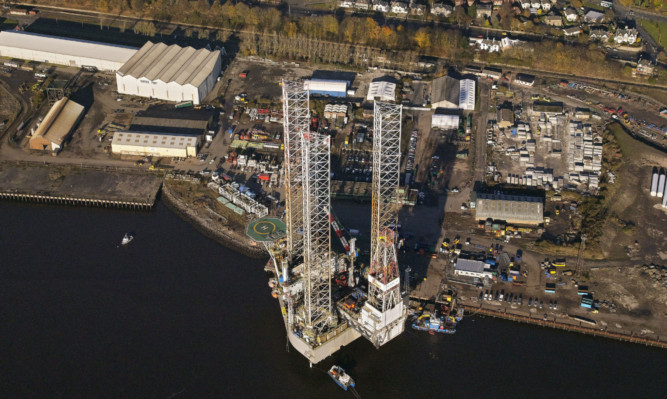Eighteen months ago I wrote in The Courier about the decommissioning opportunities for Dundee from Aberdeen’s oil and gas industry.
Since then there has been more focus nationally on decommissioning as the situation in the oil markets evolve and there is a greater awareness it is an industry for the future in Scotland.
Reporting Scotland on Tuesday night put the value of the decommissioning industry at £46 billion over the next 25 years.
The oil companies tell us we need to see the possibilities of decommissioning as a real industry for the future and take it as seriously as the start of oil and gas all those years ago.
Industries evolve as we know only too well in Dundee.
Engineering has been a thread running through the evolution of industrial change in our city.
As Timex drew to a close, it produced the first Spectrum computer and then after closure, many of the former engineers there took their skills and gave birth to the games industry that has become a great source of employment and creativity for our city.
So to think of decommissioning as simply the endgame of an industry is wrong.
A new industry will emerge out of the other end of it as well in 25 years’ time.
It is industrial innovation and progress.
And in the intervening period, who knows what spin-offs and sidelines in industry will emerge.
Premature decommissioning would be a mistake. We have been well warned of this by the experts.
There is still oil to get out of the North Sea and economic advantage for many years to come.
Even before the change in the oil market, companies in Aberdeen were starting to decommission their infrastructure but not in Scotland.
These jobs are going to Norway, Holland and England, while the Brent facilities are being decommissioned in Hartlepool.
Dundee, as we all know, needs industrial jobs.
The 750 renewables jobs the then-First Minister Alex Salmond promised to Dundee with great fanfare in December 2011 have never materialised.
That is why I have been working over the last year to try to raise the prospect of decommissioning work in Dundee.
I pulled together a meeting of Decom North Sea, with officials from Dundee City Council, Forth Ports and our Chamber of Commerce.
I have also been in touch with Scottish Enterprise to ask what support they can give.
I asked the SNP Government in Parliament what they are doing to keep these jobs in Scotland, to develop a plan so all our public agencies are working together to get a slice of this industry into Dundee and to keep jobs in Scotland.
For it is not just Dundee that could benefit.
Right down Scotland’s “Eastern Seaboard”, from Montrose to Methil, the towns are in need of industrial jobs and they have very well-placed ports for the oil and gas industry.
With levels of youth unemployment persistently at 16% in Scotland, is it not time that we took an aggressive approach to anchoring a whole new industry that is guaranteed to be worth billions over the next generation in Scotland?
The oil and gas industry has years to go and massive economic benefit still to come.
However, it is a stagnant economy and a way of thinking that is not looking to the next opportunity and working to make all the conditions right to secure jobs.
This is something Dundee City Council should be pursuing with every sinew of its being.
The V&A in Dundee will be more prosperous and have a greater economic benefit if it fits into a diversified economy where people are earning money to sustain this great cultural institution and make it successful.
A final thought on this.
When the economy of Dundee has been prosperous, trade has come in through our port.
Our port has been the gateway to industrial growth.
We had hoped and still do that it will become the hub for renewables but we must constantly innovate and aggressively pursue the next and the subsequent opportunity.
That is how this global economy works.
There is activity in our port at the moment but not enough to make our city the vibrant economy we all want it to be.
Forth Ports, the owners of our port, have a responsibility to Dundee to say how they will use our city’s entrance from the sea to its full capacity to boost our economic growth.
A port that is not working at full tilt is not serving our city as it should.
